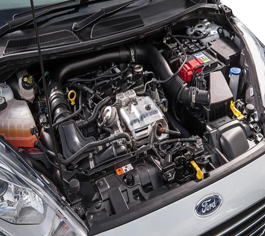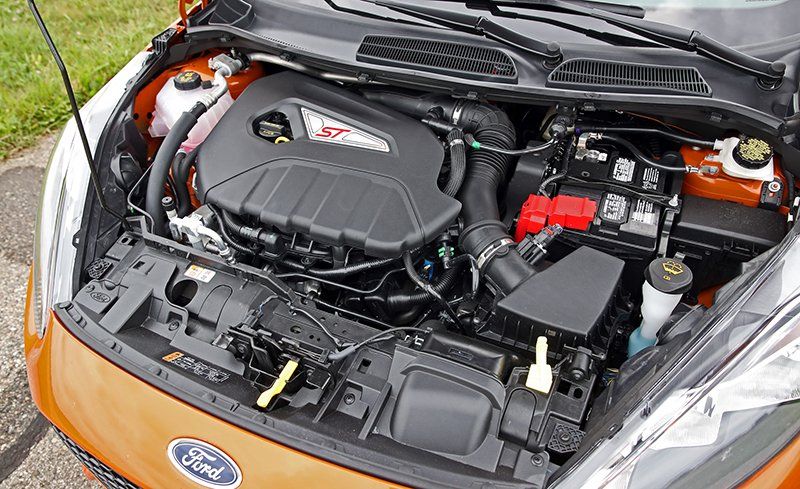The Future of Engines: Innovations Driving Lasting Power Solutions
As the automotive industry browses the vital change in the direction of sustainability, the future of engines is increasingly specified by groundbreaking innovations. Electric engine improvements, alongside encouraging advancements in hydrogen gas cells and biofuels, are reshaping the landscape of power services.
Electric Engine Developments
The evolution of electrical engine developments signifies a critical change in the aerospace and auto markets, driven by the urgent demand for lasting options to nonrenewable fuel sources. This change is defined by substantial innovations in battery innovation, power electronic devices, and electric motor style, which jointly boost the effectiveness and efficiency of electric engines.
Current technologies have actually resulted in the creation of lighter, extra energy-dense batteries, such as lithium-silicon and solid-state batteries, which guarantee longer varieties and much shorter charging times. Additionally, enhancements in electric motor effectiveness, such as using irreversible magnets and progressed cooling systems, enable electrical engines to run effectively under varying conditions. These enhancements not only improve car performance but also add to a reduction in total energy usage.
Moreover, the assimilation of advanced software application algorithms has optimized power monitoring in electrical lorries, permitting for regenerative braking and anticipating charging strategies. As producers significantly embrace electric propulsion, the automobile and aerospace markets are seeing a standard shift towards greener technologies. This evolution not just meets governing demands yet also straightens with customer preferences for eco-friendly transport remedies, strengthening electrical engines as a cornerstone of future sustainable wheelchair.
Developments in Biofuels
As the aerospace and vehicle sectors increasingly prioritize sustainable power sources, improvements in biofuels emerge as a complementary service to electrical engines. Biofuels, stemmed from natural materials such as crops, waste, and algae, present a cutting-edge avenue for minimizing greenhouse gas exhausts and dependence on fossil gas.
Recent study has concentrated on improving the efficiency and sustainability of biofuel manufacturing. Second-generation biofuels make use of non-food feedstocks, minimizing competitors with food supply and lowering environmental effect. In addition, advancements in synthetic biology have enabled the engineering of microbes to generate biofuels better, leading to greater yields and reduced production costs.
Additionally, the growth of drop-in biofuels enables smooth combination right into existing infrastructure, making it possible for a smoother shift for sectors typically reliant on nonrenewable fuel sources. ford fiesta engine. These gas can be utilized in current engines without modifications, promoting their fostering across numerous industries
Investments in biofuel modern technology, together with supportive policies, are important to drive development and scalability. As the global area seeks to combat environment modification, biofuels supply a pragmatic, immediate service that lines up with the overarching goal of sustainability in transport and air travel.
Hydrogen Gas Cell Modern Technology
A growing number of companies and scientists are exploring hydrogen fuel cell innovation as a feasible option to conventional power resources in transport and power systems. This modern technology transforms chemical power from hydrogen into electrical power via an electrochemical response, with water as the only byproduct, making it an eco-friendly choice.
The core of hydrogen fuel cells is the gas cell stack, where hydrogen molecules are divided right into electrons and protons. The circulation of electrons generates electrical energy, while protons relocate via a membrane to combine with oxygen from the air, creating water. This process results in high effectiveness and reduced discharges, positioning hydrogen gas cells as a crucial player in the shift to sustainable power.
Significant improvements have been made in boosting the longevity and effectiveness of gas cells, along with lowering prices through ingenious production strategies. The growth of hydrogen manufacturing methods, such as electrolysis powered by eco-friendly power resources, boosts the sustainability of the total system. As facilities for hydrogen refueling expands and manufacturing techniques come to be a lot more efficient, hydrogen gas cell innovation holds wonderful pledge for decarbonizing numerous industries, consisting of sturdy transport and stationary power generation.
Crossbreed Solutions and Their Effect
Hybrid systems represent a significant evolution in sustainable engine innovation, combining typical inner burning engines with electric propulsion to enhance energy performance and minimize emissions (ford fiesta engine). This twin method permits automobiles to use both source of power, allowing higher flexibility in energy intake and reducing dependence on nonrenewable fuel sources

In addition to environmental benefits, hybrid systems provide consumers a sensible change in the direction of fully electrical cars. They ease range stress and anxiety by incorporating the benefit of fuel with the advantages of electrical propulsion, making them an appealing option for a broader audience.
The Role of AI in Engine Style
Leveraging innovative algorithms and device knowing strategies, the automobile industry is progressively incorporating synthetic intelligence (AI) into engine style procedures. AI enhances the performance and effectiveness of style by analyzing large datasets to recognize optimal configurations and efficiency criteria. This capability permits designers to imitate different operating problems and forecast engine actions under numerous situations, substantially minimizing the time and price related to traditional prototyping approaches.
Furthermore, AI assists in the advancement of advanced materials and combustion processes tailored for sustainability. By optimizing gas efficiency and lessening exhausts, AI-driven designs align with worldwide campaigns focused on decreasing the carbon impact of vehicle engines. Maker learning formulas can additionally anticipate maintenance needs, leading to boosted dependability and longevity of engine parts.
In Addition, AI is crucial in the assimilation of electrification technologies, such as hybrid systems, where it can optimize battery administration and energy healing processes. As the industry relocates towards more lasting power options, the role of AI in engine layout comes to be increasingly essential, driving development and improving the efficiency of future engines. Eventually, the cooperation in between AI and engine style heralds a brand-new age of smarter, cleaner, and more effective auto modern technologies.

Conclusion
To conclude, the future of engines is being formed by a merging of cutting-edge home modern technologies that focus on sustainability. Electric engine improvements, biofuel advancements, hydrogen gas cells, and crossbreed systems collectively add to a considerable reduction in emissions and ecological have a peek at these guys influence. In addition, the assimilation of synthetic intelligence in engine layout improves efficiency and efficiency. These transformative remedies underscore a dedication to producing a cleaner, a lot more sustainable auto landscape, eventually benefiting both society and the setting.
Electric engine innovations, along with promising developments in hydrogen fuel cells and biofuels, are improving the landscape of power services. Additionally, enhancements in electric motor effectiveness, such as the use of permanent magnets and progressed cooling systems, enable electrical engines to run effectively under differing conditions. By maximizing fuel performance and reducing discharges, AI-driven designs straighten with global efforts aimed at decreasing the carbon impact of over at this website automobile engines. As the industry relocates in the direction of more lasting power remedies, the duty of AI in engine layout becomes significantly vital, driving advancement and boosting the efficiency of future engines. Electric engine developments, biofuel developments, hydrogen gas cells, and hybrid systems jointly contribute to a substantial decrease in exhausts and ecological influence.